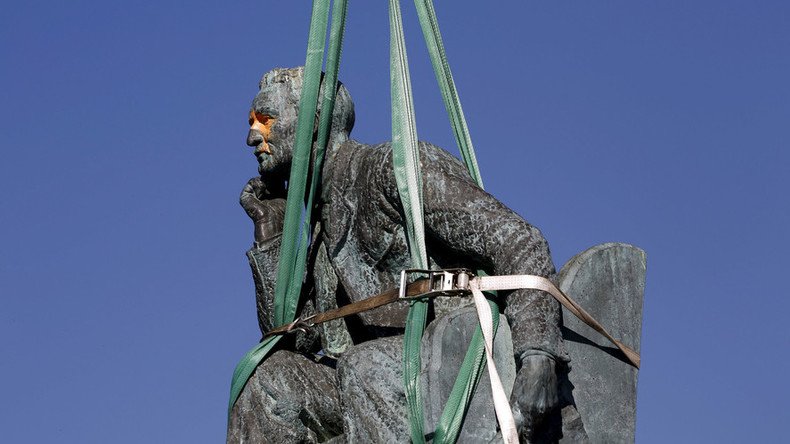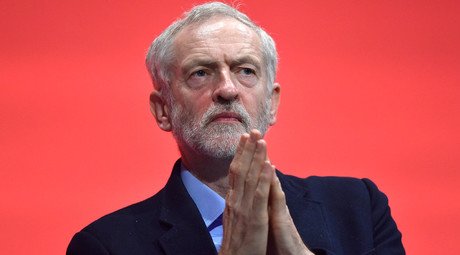Rhodes must fall: Oxford students vote out imperialist statue

Cecil Rhodes’ statue at Oxford must go after decolonization campaigners won a historic vote, yet a YouGov polls finds 44 percent of Britons are proud of British colonial history.
Some 245 students voted to remove the statue of Victorian imperialist Cecil Rhodes, after whom the former country of Rhodesia (now Zimbabwe) was named, from the Oxford University grounds, while 212 voted against.
The Rhodes Must Fall (RMF) campaign is part of a wider ‘decolonizaton’ movement at the prestigious institution which has served as a training ground for the British establishment for centuries.
Arguing against the motion, theology Professor Nigel Biggar warned that the removal of Rhodes could see representations of other famous figures banished from Oxford.
“If Rhodes must fall, so must Churchill, whose views on empire and race were similar,” he said.
Biggar said that a range of other historical figures would be at risk of censure if their views on race were the deciding factor.
“While Lincoln liberated African-American slaves, he doubted they could be integrated into white society and favored their separate development—their apartheid—in an African colony."
“Last year the shine on Mahatma Gandhi’s halo came off, when we learned of his view that Indians were culturally superior to black Africans. Should this blot out all his remarkable achievements? I think not," he added.
RMF campaigner Ntokozo Qwabe argued for the removal of the statues, arguing that the effigy of Rhodes was symptomatic of a broader issue.
"The statue is an emblem,” he said. “We find it deplorable that only 24 black British students were accepted last year into undergraduate body. It's not just about the statue."
The vote came as a study by pollsters YouGov showed that 44 percent of Britons were proud of the achievements of the British Empire.
The poll also found that 43 percent said it was a good thing, while 19 percent said it was bad and 25 percent viewed it as neither.
Another poll from 2015 suggested that a British colonial mindset hindered relations with former colony India in the view of young Indians.
The negative views may be due, in part, to Britain’s track record of colonial dominion over India, the report suggests.
“In some contexts, the colonial legacy presents a barrier for the UK in forging relationships with India today and in the future,” the report argues.
British imperial history is not routinely taught in schools, though during his time as Tory Education Minister Michael Gove MP called for it to be added to the curriculum.
Labour leader Jeremy Corbyn has expressed support for a similar idea, providing that the various massacres and atrocities which characterized British Empire are taught along with the positives.













